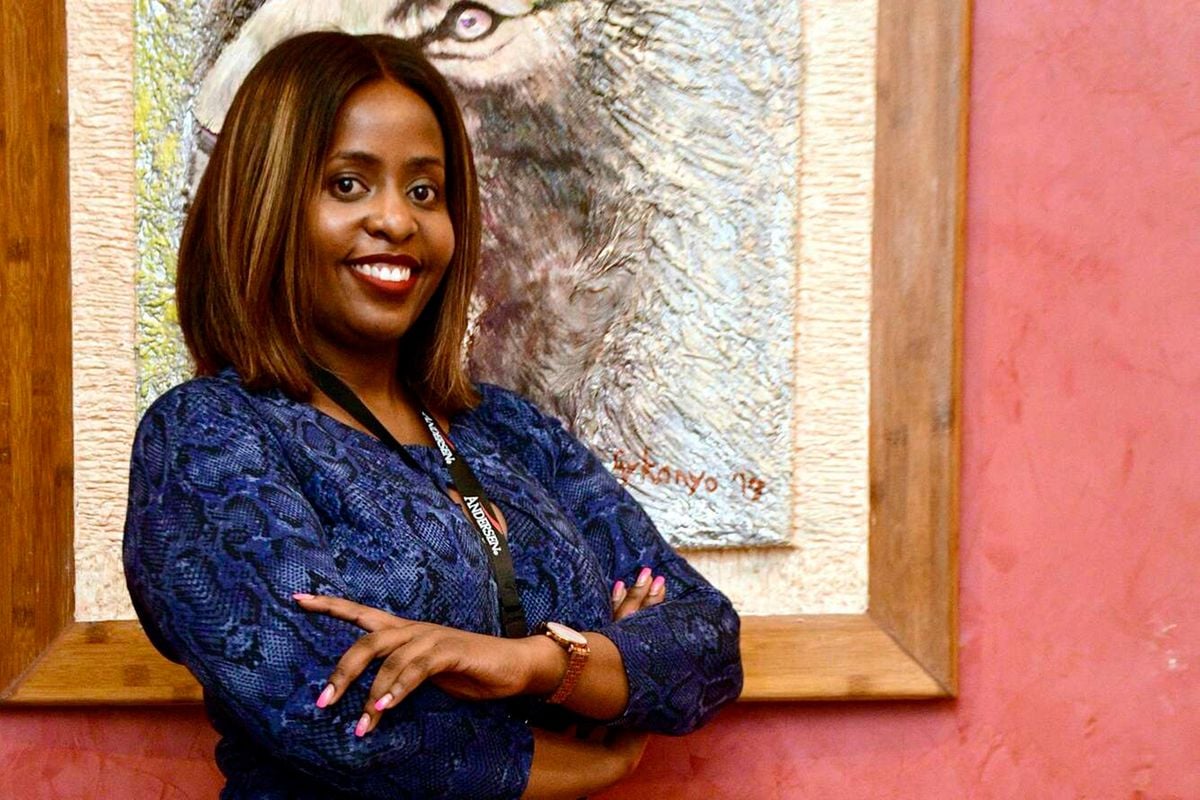
“I’m just a girl from Tetu,” says Dianah Mureithi with a sense of pride as we exchange pleasantries. I get to hear this statement multiple times throughout our conversation.
Dianah is the Head of Legal Services and Private Wealth at Andersen Kenya. She is a private wealth lawyer pursuing a Master’s degree in Clinical Psychology (dual qualifications as a lawyer and psychologist).
The girl from Tetu is also a guest lecturer at Strathmore University. Further, she trains lawyers and other practitioners on wealth structuring. She is also a certified professional mediator.
A girl from Tetu… You say that with a sense of pride.
Oh yes! I come from Tetu in Nyeri County and the first time I left Nyeri was to join Moi University, Eldoret for my law degree in 2008. My friends tease me all the time because I only learned that not everybody understands Kikuyu when I joined the university.
I was such a local girl, I remember calling my mum to ask for permission to attend Fresher’s night. [A party organised for first-year students]. Of course, she said no and I spent the whole night alone in the room.
What is your fondest childhood memory?
My childhood was a typical rural upbringing, as the fourth of five siblings. I’ve always been adaptable, a trait I still carry as a typical middle child. One of my fondest memories is from when I cleared Class 8 and scored 409 out of 500 marks. My family was overjoyed with my achievement, and when they asked me what I wanted, I simply said I wanted a Sprite soda, canned. My brother fulfilled this wish, and I was ecstatic. It’s a memory that makes me smile to date.
Why the legal route?
This was my mother’s suggestion. I was a bright student who had a particular liking for Chemistry. When we were doing course selection, I selected Bachelor of Science in Education because I wanted to be a Chemistry and Business Education teacher.
However, when the results came out, I had passed very well with a glittering A minus of 79 points. My parents – both teachers, said I couldn’t take teaching with my grade. My dad wanted me to switch to engineering but I disliked Physics. So I went with my mother’s suggestion to take law, and six months into the course, I knew that was the course for me.
How was the transition from school to the corporate world?
After my law degree, I joined the Kenya School of Law (KSL), after which I started my pupillage applications. This was the first time that I received a rejection. I grew up with a lot of love and affection from my parents. My dad always referred to me as a princess or president.
Also, being a bright student, I pretty much got everything I wanted. So applying for pupillage and getting rejected was new to me. But I am also grateful, as this opened my eyes to how the world works. After two rejections, I got accepted to a corporate firm in 2014, and my legal practice began there.
You have since found a niche…
Yes, I am a wealth attorney. But it did not just happen. I grew with my immediate previous employer. I joined the firm in 2014 after getting admitted to the bar and started off on clerical duties. The firm was also relatively new then, but now it is among the leading law firms. After being confirmed as a clerk, the firm needed to start doing the basic succession. I was assigned one succession matter and then the whole department just blew up – dealing with succession cases one after the other.
I was promoted to senior associate within a year of being an advocate. By my third year of practice, I was the go-to person on matters of succession and structuring of family businesses. By the time I was leaving the firm earlier this year, I was a partner.
What does a wealth attorney do?
In layman’s language, what a wealth attorney does is review a portfolio, which is all your assets and all your liabilities. They look at it and advise on what legal risks you have in your portfolio. The risks can be that you’re susceptible to creditors, poor debt structuring, and the like. We review the legal risks and the tax risks.
Tax risk is something most people don’t see because it’s not glaring at you and you’re not a tax expert. Sometimes you don’t realise your Return On investment (ROI) is lower just because you’re under an onerous tax burden. For instance, currently, the tax burden for personal income tax is higher than that of corporate income tax.
Anyone who structures their business as a sole proprietorship is paying more taxes. So a wealth attorney would come in and advise that it’s time to convert and make it a company. We help structure wealth for our clients.
What are some of the challenges you have encountered on this path?
The ever-evolving tax landscape for trusts is creating uncertainty. For instance, between 2021 and 2024, it seems that all four Finance Bills have introduced or attempted to introduce changes in the taxation of trusts.
This affects practice and demonstrates the misalignment in national policy on the promotion and preservation of generational wealth. Further, there aren’t many wealth attorneys in Kenya. Structuring the practice has been learning the on-the-go process and adapting to client needs.
The bulk of private wealth practice has always been by finance practitioners’ while lawyers just focused on estate planning and didn’t generally consider the larger realm of wealth structuring.
What keeps you going?
I love to say I am my father’s child in many ways. I was raised by a father, whose love was tangible. Like you could touch it. The love that I got to experience when he was alive holds me together even when things are not working out. This love that I got to experience first-hand from him keeps me going. I very much resonate with Harper Lee’s quote that says; …She did not stand alone, but what stood behind her, the most potent moral force in her life, was the love of her father.
How do you strike a work-life balance?
There is nothing like work-life balance. It is a work-life integration. As a mother of three relatively young children, I have to ensure that I am not failing in any of my duties. I have mastered the art of integrating my children into my busy schedule and vice versa. For example, I purpose to drop them off at school most mornings, which means that I hardly schedule meetings during the morning hours. If there are any after-work events in the evenings, I ensure that I go home first, bond with the children, and then come back for the event. I also have a very strong support system at home and at work.
What are you most proud of?
I sometimes still find it surreal that this girl from Tetu made it this far. We currently have global clients, and the fact that I get a chance to advise the world’s wealthiest people on how to structure and manage their wealth is such a huge accomplishment for me. When my partners ask my opinion about something, which happens often because we work as a team, I sometimes hesitate and ponder. Wow, my opinion matters to people who are very advanced in this field. It is such a humbling experience.
What does the future look like for you?
It looks promising, for sure. The future is global for me, as now I’m not just a Kenyan lawyer. I get to speak and advise people who hold and own wealth across the region and the world on how to structure it. And that’s super exciting for me because I can’t imagine that a girl from Tetu now gets to do that—it’s like two realities apart. I’m also very deliberate so that when it’s my time to look back on my life, there won’t be regrets and I will be happy about the decisions I made concerning the relationships that I find key.





![Weekly Report [June 07 – 14]: 3iQ Crypto Feeder ETFs, Lithuania booming crypto wallet ban, MasterCard NFT collaborations and more](https://www.wazupnaija.com/wp-content/uploads/2022/06/weekly-report-june-07-14-3iq-crypto-feeder-etfs-lithuania-booming-crypto-wallet-ban-mastercard-nft-collaborations-and-more-327x219.png)



